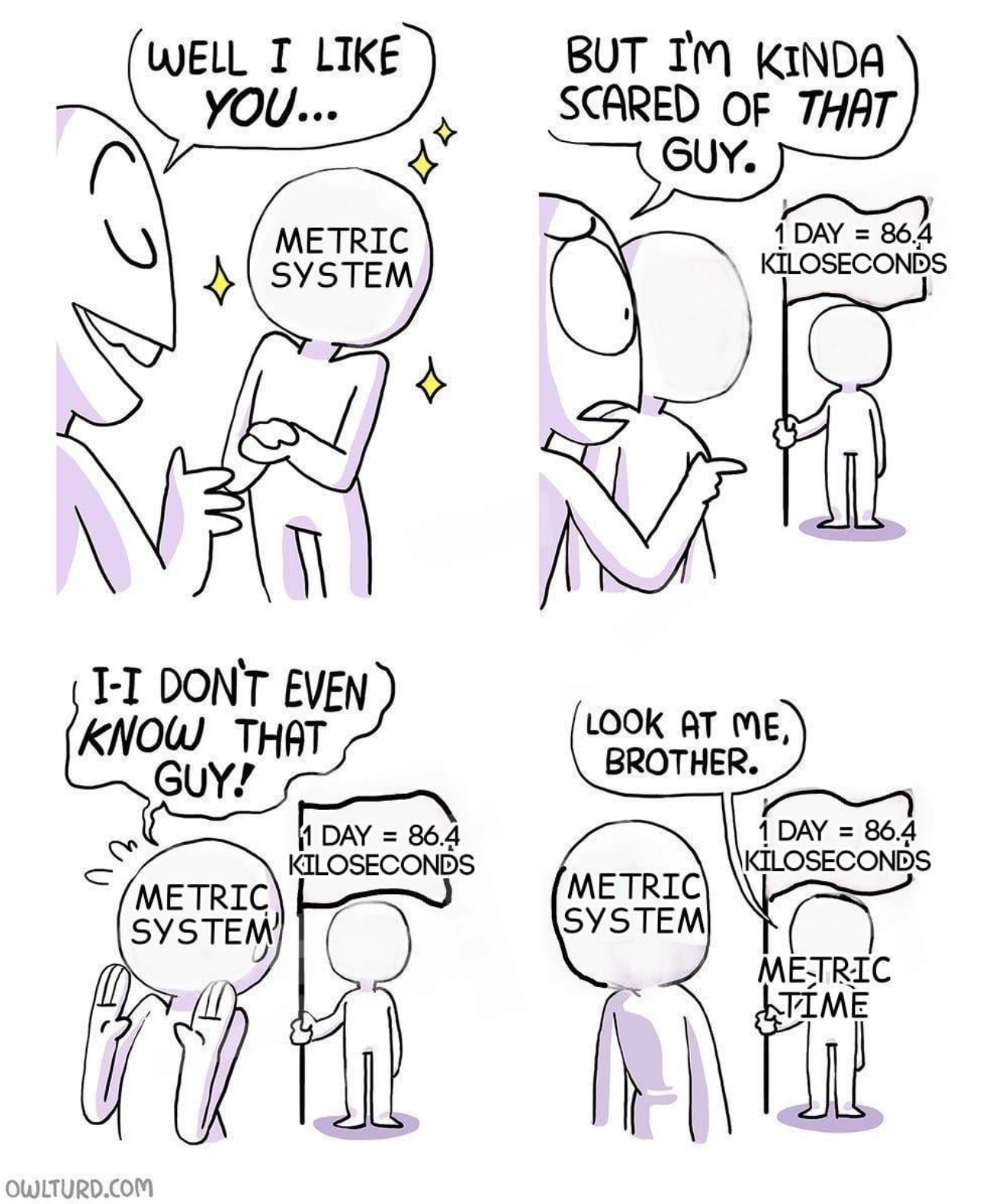this post was submitted on 15 Feb 2024
854 points (95.3% liked)
memes
12983 readers
5820 users here now
Community rules
1. Be civil
No trolling, bigotry or other insulting / annoying behaviour
2. No politics
This is non-politics community. For political memes please go to [email protected]
3. No recent reposts
Check for reposts when posting a meme, you can only repost after 1 month
4. No bots
No bots without the express approval of the mods or the admins
5. No Spam/Ads
No advertisements or spam. This is an instance rule and the only way to live.
A collection of some classic Lemmy memes for your enjoyment
Sister communities
- [email protected] : Star Trek memes, chat and shitposts
- [email protected] : Lemmy Shitposts, anything and everything goes.
- [email protected] : Linux themed memes
- [email protected] : for those who love comic stories.
founded 2 years ago
MODERATORS
you are viewing a single comment's thread
view the rest of the comments
view the rest of the comments

You could change the length of a second so a day is 100 kilo seconds for instance.
Much like other imperial measurements the length of a second is arbitrary.
The second is actually the most fundamental unit of the metric system. For example, a metre is defined by how far light travels on some fraction of a second.
https://en.m.wikipedia.org/wiki/Caesium_standard
You can just change that, though, so long as the change is consistent. All units of measurement are human constructs, and definitely aren't immutable.
The length of a day is variable. You would have to update the second (and every unit derived fro It) after every big earthquake, and a thousand other events.
The solar system does not give a shit about your preference for base 10 numbers there will always be (roughly) 365.25 rotations per revolution and you don’t get a choice about that.
Exactly. You don't get very far at all before perfectly natural divisions of time can't divide evenly by 10. You can't "fix" it, like you can with mass or length, unless you demand people give up on centering time around astronomical events. The second is an SI unit. Science can be done in seconds. Anything else just shifts the awkwardness of orbital mechanics elsewhere, while pissing everyone off.
Can you explain this argument to me.
The second is currently a fixed length, there's a fixed amount in the day and we don't adjust it now.
So how would it be any different if we changed the amounts?
My main point is that you've done nothing but kick the can down the road a little bit, so people decided it wasn't worth the trouble. It's annoying that there 60 seconds in a minute, 1800 in an hour, ~86k in a day, fair enough. Let's say you make a new metric second that has 100k in a day. You make certain things easier, but how are you keeping time on anything like a larger scale?
You can probably come up with something fairly usable with ten-day weeks, but what about years? This is is where it breaks down. A year is based on astronomical events, but different ones than a day, both are deeply ingrained into the routines of life. It is 365 and a a quarter (-ish) days in a year. We're stuck with that, unless you just want a number that has no useful context for humans after a few years. Throw in that you also have leap seconds to add every so often, and in the end it's still going to be a mess of decimal units that go unused, and customary units that will not be given up, but with all the drama of making a change.
There is no single bandaid to pull off, so it's not the obvious improvement that other weights and measures are, because time is more fundamentally rooted in our experience as animals than what we label a given amount of stuff.
Decimal time works perfectly. For years, as you say, you are stuck by how long a year is. All you can do here is better divide the months. 13 x 28 days is my preference.
Due to tidal forces, the length of a day is constantly trending longer. Also, the moon is slowly drifting away from the earth for the same reason and lunar months are also getting longer.
So, no, the day hasn't been and will not always be the same length.
It isn't in our current system.
https://en.m.wikipedia.org/wiki/Decimal_time